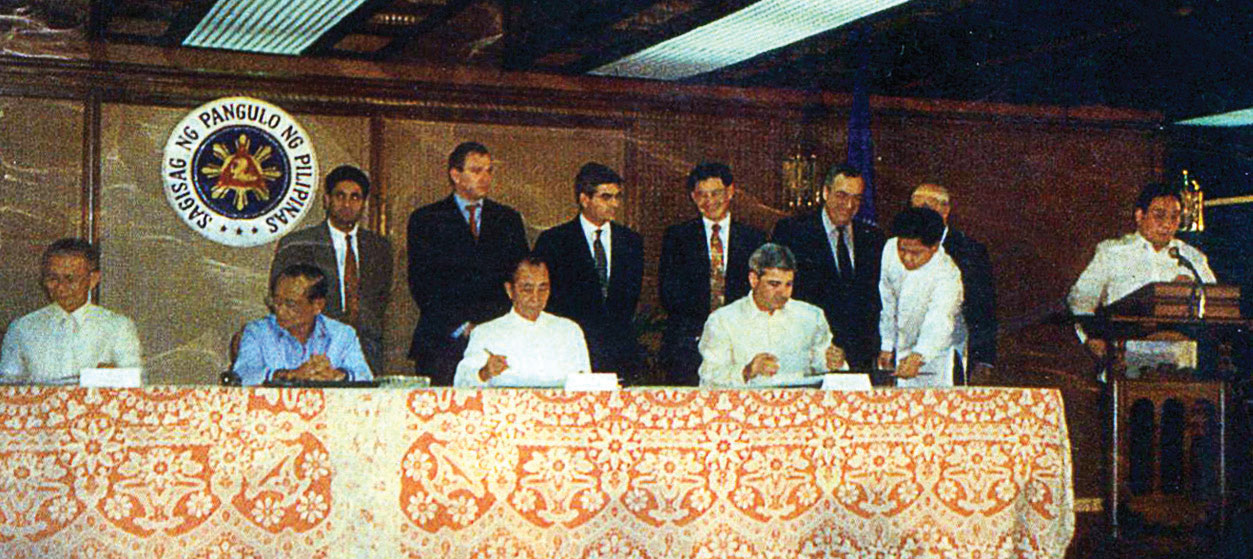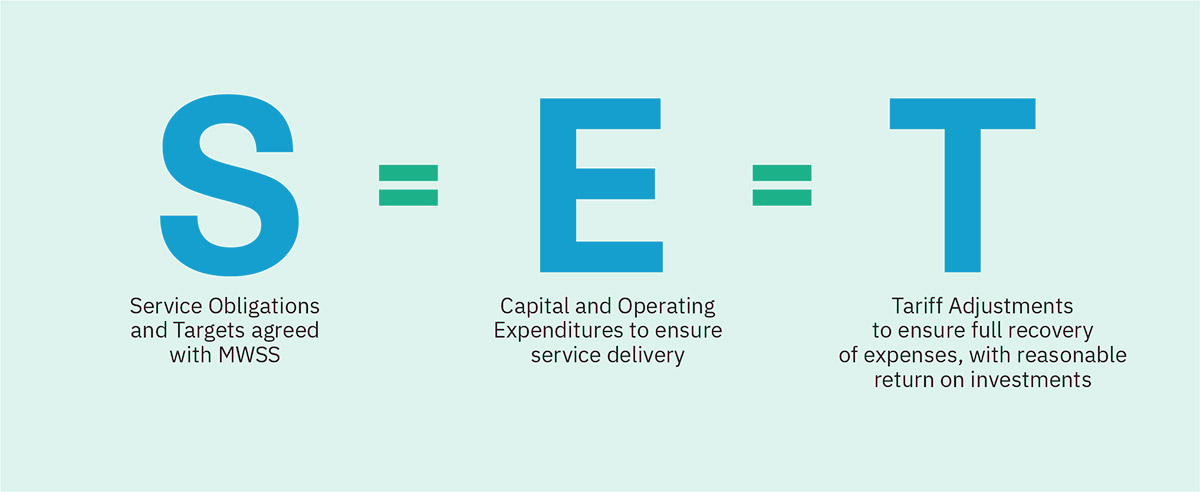Special Reports

In late 2019, the Philippine President made public pronouncements questioning the 1997 MWSS Concession Agreement, claiming the presence of onerous provisions which are disadvantageous to the government and the people, and declaring the intention to impose a new agreement with concessionaires. This also resulted in the MWSS Board revoking its 2009 resolution to extend the Concession Agreement by fifteen years.
This article intends to put on record facts of how the public private partnership provisions were developed, what the Concession Agreement provides for, and give an update (as of writing this article) on the status of the much-publicized review, preparation and adoption of the revised agreement.
In the mid 1990’s the Philippines suffered from a power crisis and a water crisis, both arising from the inability of government to invest timely in infrastructure to address growing demand for electricity and water. In response to the water crisis especially in Metro Manila, the Philippine Congress passed the Water Crisis Act, part of which had provisions giving the President the option to adopt privatization of utility operations as a mode of improving water services.
With support from the International Finance Corporation, and after having studied the various public private partnership models on water services around the world at the time, the Philippine government developed a contract which it believed contained the best provisions that would result in improvements in water services expansion and delivery, efficiency and affordability of services, and while ensuring the bankability of an operating and financial model to potential private bidders.
In early 1997, the proposals for the East and West concessions in Metro Manila were submitted by four private sector bidders, all of whom were joint ventures between an international water operator and a local firm. Manila Water won the public bid for the 25-year MWSS concession in the East Zone of Metro Manila, while Maynilad Water Services won the bid for the West Zone. Operations of the water utilities commenced in August 1997.
In 2009, in response to the Supreme Court’s mandamus on the cleanup of Manila Bay which effectively redefined the wastewater service expansion targets, the MWSS extended the Concession Agreement by fifteen years, to ensure wastewater services affordability by having a longer full cost recovery period.
...the Philippine government developed a contract which it believed contained the best provisions that would result in improvements in water services expansion and delivery, efficiency and affordability of services, and ensure the bankability of an operating and financial model to potential private bidders

The Concession Agreement between two equal parties, Metropolitan Waterworks and Sewerage System (MWSS) and Manila Water, provides the structure and framework on which a private sector partner of government was able to rehabilitate and expand water and wastewater services in the east zone of Metro Manila.
The Concession Agreement is an output-based framework, wherein the concessionaire is tasked to fulfill service obligations and uphold performance standards under a Service Improvement Plan discussed and approved by the MWSS Regulatory Office, an office created by the Concession Agreement that is intended to represent the interests of the customer. The performance of the concessionaire against these standards is reviewed every five years throughout the concession period, under what is called a Rate Rebasing Exercise. Past accomplishments are reviewed by MWSS, and future plans for service improvement and expansion are presented for review and approval. Once the Service Improvement Plan is finalized, the computation of the rate adjustment is undertaken, wherein a “reimbursement model” is adopted, allowing for the full recovery of capital and operating expenditures over the remaining life of the concession, at a rate of return set against industry and market conventions and duly approved by MWSS. The expenditures which figure into the setting of rates are reviewed by MWSS against standards of prudence and efficiency, to ensure that all outlays are in line with the fulfillment of set service obligations.
Under this framework, the concessionaire is provided a clear and consistent set of guidelines on which to fulfill its responsibilities. The concessionaire can take on the massive amounts of capital expenditures and market risk necessary to execute its service improvement and network expansion projects over a long project horizon. Tariff setting under the framework is formula-based, thus lending predictability to the expectations on which the concessionaire can secure support and financing for its operations.
The Concession Agreement is an output-based framework, wherein the concessionaire is tasked to fulfill service obligations and uphold performance standards under a Service Improvement Plan...
Ultimately, the government maintains clear oversight on the implementation and administration of the Concession Agreement, through the MWSS Regulatory Office which is intended to represent the interests of the customer while performing the balancing act of overseeing the delivery of service obligations, ensuring service affordability and financial sustainability. Ownership over the water and wastewater asset base is retained by MWSS. Any additional assets invested in by the concessionaire during the life of the concession will be turned over to MWSS at the end of the concession period. In line with the Rate Rebasing process, all inputs to the rate setting process – from service obligations, expenditures, rates of return, all the way to the implementation of the new rates – is approved by MWSS.
Disputes between the concessionaire and MWSS are resolved via international arbitration wherein a panel is created under Concession Agreement rules and the decision of which becomes binding on both parties once issued. Obligations of both parties for unilateral early termination are also clearly provided in the Concession Agreement.
The Concession Agreement underwent rigorous review and challenging by numerous agencies in the Philippine Government, including the Government Corporate Counsel. The Philippine Government also warranted that MWSS was authorized to enter into the Concession Agreements when MWSS was privatized in 1997. Several questions on key terms of the Concession Agreement over the years have consistently reaffirmed the legality of the Concession Agreement and its provisions.
In December 2019, the MWSS Board of Trustees revoked its previous resolution pertaining to the extension of the Concession Agreement of Manila Water from 2022 to 2037. The MWSS Corporate Office subsequently released a press statement clarifying that the resolution did not result in the rescission or outright cancellation of the agreement. The MWSS Regulatory Office also issued a statement clarifying that the Concession Agreement extension has not yet been cancelled.
Ultimately, the government maintains clear oversight on the implementation and administration of the Concession Agreement,through the MWSS Regulatory Office...
While the Philippine President publicly stated that there is a revised agreement which will be offered to the concessionaires on a ‘take it or leave it’ basis with no room for negotiations, as of this writing the government has not officially transmitted to the concessionaires a copy of the said agreement.
The concessionaires are in constant communication – but not in negotiations – with the government, as there are no provisions yet to negotiate or comment on.
The company believes that the current Concession Agreement has delivered on the objectives of the water PPP framework in the past twenty two years. True to its continuing realization of ‘a mission to fulfil, not a business to run’, despite any challenges that come, the company will always put above all the desire to provide genuine and exceptional service to its customers.